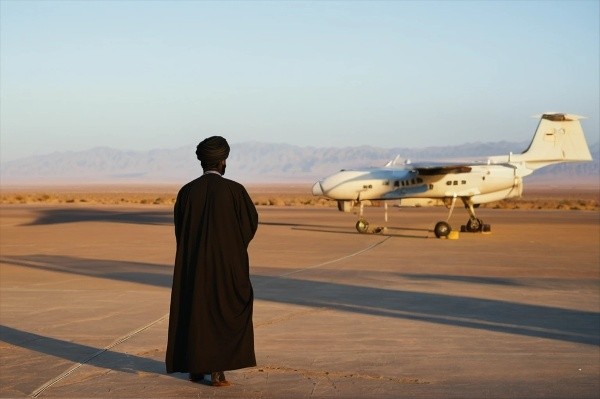Iran’s Plan to Strike Back Against the U.S.
Iran’s Military Preparations Following U.S. Attacks
Loading...

Iran says the request by France, Germany and Britain ‘lacks political logic’ and it is determined to deter Israel.
Iran has recently responded to calls from France, Germany, and the United Kingdom to stand down its threat against Israel following the assassination of Hamas’s political leader Ismail Haniyeh in Tehran last month. The Iranian Ministry of Foreign Affairs has dismissed these calls, stating that they lack political logic and contradict principles of international law. Additionally, Iran has expressed its determination to deter Israel and has called on the European countries to take a stand against the war in Gaza and the actions of Israel. This response has sparked a diplomatic exchange between Iran and the European nations, with each side expressing their respective positions on the matter.
Iran's Rejection of European Restraint Calls
Iran's Ministry of Foreign Affairs, represented by spokesperson Nasser Kanaani, has strongly rejected the calls for restraint from France, Germany, and the United Kingdom. Kanaani emphasized that the European request lacks political logic and goes against the principles of international law. He further highlighted that the European countries raised no objection to the actions of Israel and impudently asked Iran not to respond to a violation of its sovereignty and territorial integrity.
Determination to Deter Israel
In response to the European calls for restraint, Iran has expressed its unwavering determination to deter Israel. The Iranian spokesperson called on the European nations to take a firm stand against the war in Gaza and the actions of Israel. This stance reflects Iran's commitment to addressing the regional tensions and its perception of the role played by Western governments in the Gaza crisis.
Diplomatic Exchanges
Following Iran's dismissal of the European restraint calls, diplomatic exchanges have taken place between the involved parties. French President Emmanuel Macron, German Chancellor Olaf Scholz, and British Prime Minister Keir Starmer issued a joint statement calling for de-escalation and urging Iran and its allies to refrain from actions that could further escalate regional tensions. In response, Iranian President Masoud Pezeshkian asserted Iran's right to respond to aggressors, indicating a firm stance on the matter.
Regional Tensions and International Concerns
The recent exchange of statements and positions between Iran and the European nations reflects the heightened regional tensions and the international concerns surrounding the situation. The ongoing war in Gaza, the assassination of Hamas's political leader, and the broader geopolitical dynamics in the Middle East have contributed to the complexity of the diplomatic interactions and the differing perspectives on the appropriate course of action.
In conclusion, the recent developments involving Iran's response to European calls for restraint amid the Middle East tensions underscore the complexities of international relations and the challenges of addressing regional conflicts. The differing positions and diplomatic exchanges highlight the need for nuanced approaches to de-escalation and conflict resolution in the region.
This response is based on the information available up to the current date and time and reflects the latest developments in the situation.
BMM - MBA
Iran’s Military Preparations Following U.S. Attacks
Troops remain in five strategic locations, raising fears of renewed tensions and long-term occupation.
Opposition forces have taken control of the capital after a significant offensive. Here is how it unravelled.
